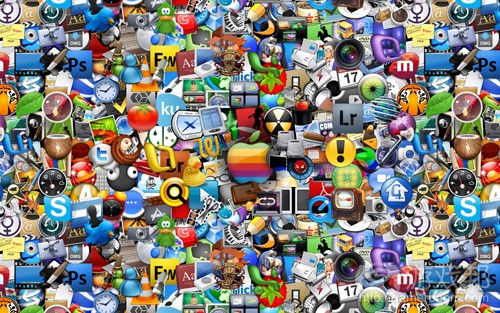开发者评述苹果之外的手机游戏发展空间
作者:Carter Dotson
现在,苹果经营着世界上最重要的游戏平台之一,占领了大半手机游戏市场。手机游戏行业正在发展,并且是以指数增长的速度,而iOS似乎就站在行业的最前沿。
其中起最重要作用的当然是App Store。那么,为什么苹果不重视游戏?
无论是什么媒体发布会,苹果都很少强调游戏。关于游戏的讨论极少,且几乎都无关紧要,比如苹果公布两款新iPad时就没怎么提到该设备在游戏方面的意义。
弱化游戏
但看看App Store:位列收益排行榜前100名的大部分应用中有75%到80%都是游戏。人们愿意在游戏上花钱和时间。玩游戏是iOS设备的最重要的功能之一。
然而,苹果对这些游戏的关注极少,并且是越来越少。苹果的iOS 7更新弱化了App Store的游戏推荐功能,这意味着玩家现在要滚动到屏幕下方才能看到推荐游戏。
这使玩家浏览应用商店的推荐游戏更加不便,进而降低了游戏推荐功能的效力—-根据我后来与一些开发者的交谈,他们觉得付费游戏的日子已经比以前更难过了。
苹果的编辑团队能够敏锐地发现每周的新鲜玩意,但他们选择的内容正面临着困境,已经造成非常消极的影响。
商业模式单一
事实上,App Store现在的商业模式非常单一,大部分应用都转向纯免费模式。
毫无疑问,仅凭两款免费游戏就挣得盆满钵溢的某iOS工作室(游戏邦注:其实就是指芬兰游戏工作室Supercell)令人震惊—-它显示了App Store的力量,同时也让人愈加觉得免费模式已经统治了整个App Store。
App Store早期曾宣称,任何开发都可以在这个平台上发挥作用,然而,现在看来,苹果正在无视它的一大部分开发者(游戏开发者)。
说到商业模式,苹果仍然非常不知变通。众筹一款iOS游戏是不可能的,因为促销码和推广限制,开发者不可能把游戏当作奖励赠给赞助者。
《Fist of Awesome》是泄露iOS复本的少数Kickstarter众筹项目之一,因为其开发者Nicoll Hunt决定提供几天免费下载,以便把这款游戏作为礼物赠送给在Kickstarter网站上赞助该游戏的人。
当然,并非该游戏的赞助者发现游戏免费了,于是就免费下载了。这场回馈赞助者的活动提前一天结束了,因为可能导致付费版的收益大跌。
谷歌怎么做
与苹果相反,Android对众筹平台特别宽容,因为他们认为这可以更直接地推广游戏。它没有像Google Play促销码(Google仍然没有落实)那么灵活,但至少是一个选择。
应用打包和任何其他非经过App Store的游戏推广形式也一样。iOS的应用包试图在系统上运行时会被判为“可疑”,但苹果关闭补充来源意味着这是唯一的方式。
苹果甚至不利用Apple TV的电视渗透策略。尽管iOS游戏具有巨大的发展潜能,但是他们却几乎没有对外公布过游戏手柄协议。
甚至苹果的视频输出适配器也已经不再对游戏友好了,比起直接视频输出,反而是要求直接通过适配器的高时延AirPlay输出。
苹果一直在有意浪费电视游戏,似乎没有什么能证明它将好好利用剩下的机遇。
做出改变
这一切都让人沮丧吗?对于或大或小的开发者而言,App Store和iOS仍然是手机游戏的优先平台。但问题是—-苹果不再是唯一的游戏平台。
在近几年和几个月以来,Android、OnLive、甚至Windows Phone的努力都不应该被忽略,如果开发者们能够以更灵活的态度面对市场的现实的话。
苹果的孤立主义政策有它的优势,但伤害那些为消费者提供内容的开发者能得到什么好处呢?
苹果必须意识到自己在游戏行业中的地位和重要性,全力帮助App Store的成长与巩固。
(本文为游戏邦/gamerboom.com编译,拒绝任何不保留版权的转载,如需转载请联系:游戏邦)
Stateside: It’s time Apple stopped playing around with gamingdia
by Carter Dotson
Right now, Apple runs the most important gaming platform and marketplace. Mobile gaming is on the upswing, growing exponentially, with iOS seemingly at the forefront.
Crucial to all this, of course, is the all-conquering App Store. So, why doesn’t Apple care?
Apple barely pays gaming any heed whatsoever at its big press splashes. Talk of games occupied only a small, almost inconsequential, part of the iPad reveal, for instance.
Game off
But look at the App Store: the majority of the top 100 grossing apps, 75 to 80 percent, are games. People are spending time and money on games. They’re one of the most important features of an iOS device.
Yet, Apple does little to feature them, and it’s arguably doing less and less as time passes. Apple’s iOS 7 update reduced the prominence of games features on the App Store, to the level that gamers now have scroll down to see featured games.
This makes it harder for users browsing the store to see the featured games, and decreases the effectiveness of games being featured – which, based on developers I’ve talked to of late, already felt like it had less and less time for paid releases as it was.
Apple’s editorial team has a great eye for what’s good every week, but the fact the content they choose is being pushed less prominently on the marketplace risks having a majorly negative impact.
One size does not fit all
In fact, it’s forcing the App Store into the current homogeneous business model where the major releases are shifting purely toward that free-to-play model.
It’s undoubtedly impressive that an iOS studio with just two free-to-play game under its belt can secure a multi-billion valuation – it shows the power of the App Store – but the future increasingly feels like one dominated by free-to-play.
The fact that the App Store’s early days thrived on the idea hat any developer could be a major player makes the suggestion that Apple is turning a blind eye to large portions of its developer base especially hard to take.
Apple remains incredibly inflexible when it comes to business models that don’t go directly through the App Store. Crowdfunding an iOS game is practically impossible because it’s impossible to deliver games as a backer reward due to the promo code and ad hoc distribution limits.
Fist of Awesome was one of the few Kickstarter games to give away iOS copies, and developer Nicoll Hunt decided to make the game free for a couple of days to allow Kickstarter backers to get the game.
Of course, others discovered the game was out for free, and it caused thousands of people to download the game for free who ‘shouldn’t have. The promotion ended a day early, because it was potentially haemorrhaging sales for the paid launch.
Go go Google
Of course, Android makes taking to crowdfunding platforms especially easy, since it’s possible to distribute games directly. It’s not as neat a solution as having Google Play promo codes, which Google still refuses to implement, but at least it’s an option.
The same goes for bundles and any other way of distributing games that isn’t through the App Store. The one iOS bundle that attempted to work around the system is somewhat ‘suspect’, but the fact Apple shuts out supplemental sources means it’s the only way.
Apple’s not even taking advantage of its TV penetration with the Apple TV, and its gamepad protocol has been given little to no public mention at all despite being a potentially-major development for iOS games.
Even Apple’s video output adapters have become gaming-unfriendly, instead rendering a high-latency AirPlay output directly through the adapter rather than a direct video output.
TV gaming has been intentionally squandered by Apple, and there’s only cursory indicators that it’ll take advantage of the opportunities that remain.
Time for change
The thing that makes all this frustrating? The App Store and iOS remain priorities for the mobile gaming industry, from the small to the large developers. But the thing is – Apple’s not the only game in town any more.
Android, microconsoles, even Windows Phone’s efforts shouldn’t be counted out in the coming months and years, particularly if developers find them to be more flexible to the realities of the market.
Apple’s isolationism has its advantages, but what possible gain is there to hurting the developers that power its store, that provide the content that itscustomers want?
Apple needs to realise its place and importance in the gaming world, and help to nurture and strengthen the App Store as best it can.(source:pocketgamer)
下一篇:为什么声音是社交游戏的杀手锏?








































 闽公网安备35020302001549号
闽公网安备35020302001549号